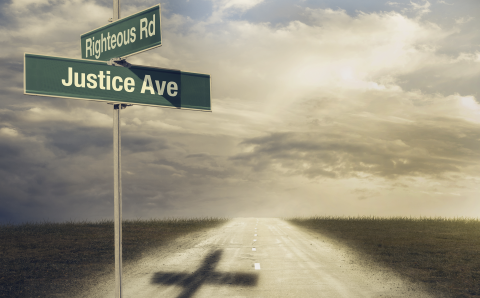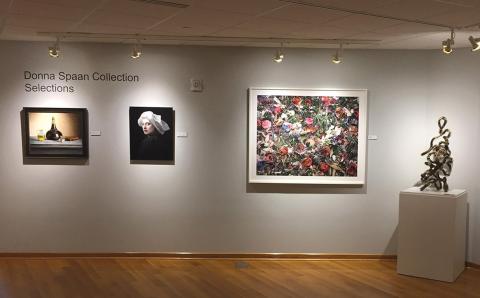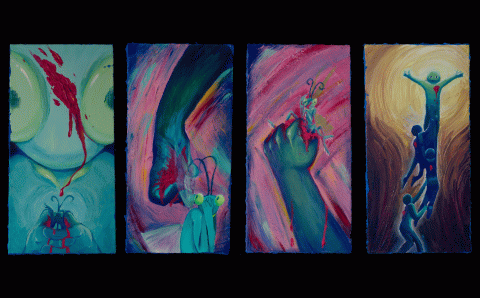When leaders of Classis Minnkota (a regional group of churches) met with denominational staff of the Christian Reformed Church, all agreed that it was good to meet face to face to talk about the controversy of the CRC’s Do Justice blog.
The blog is produced by the CRC’s Office of Social Justice (OSJ) and the CRC’s Centre for Public Dialogue in Canada. Minnkota leaders said it includes articles that promote syncretism. Staff said the blog is a place to begin conversations about social justice and ministry contextualization.
That disagreement came to a head at Synod 2017 (the annual leadership meeting of the CRC) when Classis Minnkota asked for better oversight of the blog “to ensure that the posted articles are in line with Scripture and our confessions and that articles that are not in line with Scripture and our confessions are removed.” (See Agenda for Synod 2017, pp. 424-428.) Its request noted a number of articles in which the authors reported and explored participation in First Nations religious ceremonies, including a new moon ceremony and prayer in the name of the Great Spirit.
OSJ’s response, published in the Acts of Synod 2017(pp. 583-587), said that questions of syncretism and pluralism have already been dealt with extensively by synods and particularly by the Canadian churches of the CRC. “Classis Minnkota’s concerns about syncretism and the integration of culture and Christian faith are critical—even suspicious—of non-European practices, and do not evidently examine European syncretisms,” it read. “We observe a prevailing assumption in the church that Western European practices and interpretations are normative in Christianity. Ultimately this is idolatrous, and it is also at the root of suspicion about Indigenous cultural practices.”
Synod 2017’s directives (Acts of Synod 2017 starting at p. 638) included telling those who have oversight of the Do Justice blog to “ensure that the articles are written in such a way that they encourage a Reformed understanding of Scripture.” There is now a disclaimer at the bottom of Do Justice articles: “The Reformed family is a diverse family with a diverse range of opinions. Not all perspectives expressed on the blog represent the official positions of the Christian Reformed Church.”
It also instructed the executive director, in the spirit of Matthew 18, to initiate a face-to-face visit between Classis Minnkota and representatives from the Centre for Public Dialogue and the Office of Social Justice to discuss the issues presented in the overture.
Participants gathered on February 28 in Sioux Falls, S.D., and shared a meal before discussing the matter at hand. They included CRC executive director Steven Timmermans; Rev. Reggie Smith and Mike Hogeterp, who supervise Do Justice; Rev. Duane Kelderman as theological consultant; Revs. Roger Sparks, Joseph VandenAkker, and LeRoy Christoffels, members of the Classis Minnkota interim committee; and Rev. Joshua Christoffels, a delegate to Synod 2017 from Classis Minnkota. Two Christian Indigenous leaders, Darlene Silversmith and Harold Roscher, also participated and shared from their experience.
No one went into the meeting expecting the issues to be resolved. “The goal of the meeting was to illuminate understanding between Minnkota and the leaders of Do Justice about the articles in question,” Smith said. “Synod is a terrible venue for having these kinds of conversations. This venue was not set up as a battlefield but a table for story, understanding, questions, and fellowship.”
Hogeterp said, “I suspect that there was some new understanding on issues of cross-cultural ministry amongst us. There are also areas of ongoing disagreement. All of which points to the importance of ongoing conversation on matters of cross-cultural mission.”
Joshua Christoffels said that while it was helpful to hear the perspectives of all those present, including those from the Indigenous community, they didn’t seem to come to any conclusions about what is and is not acceptable worship practice.
Sparks said it isn’t enough to post a disclaimer saying that an article doesn’t necessarily reflect the views of the CRCNA. “Our conviction is that the post [about the new moon ceremony] should be removed from the CRCNA website because it presents in a positive light a practice that the Bible forbids.”
Smith said there is much to be learned from the conversation. “We can learn from the Minnkota conversation that controversy doesn’t have to be a battle for theological winners and losers. It could be a way forward in finding common ground, gaining understanding, and moving forward as a unified church of Jesus Christ.”
VandenAkker agreed that it was beneficial to get to know each other directly and personally but that more needs to be done. “The purpose of the meeting was not to produce a synodical report on this issue, which is what is really needed to provide the theological and practical guidance necessary for the denomination to ‘do justice’ to this issue,” he said.
Related article:
About the Author
Gayla Postma retired as news editor for The Banner in 2020.








